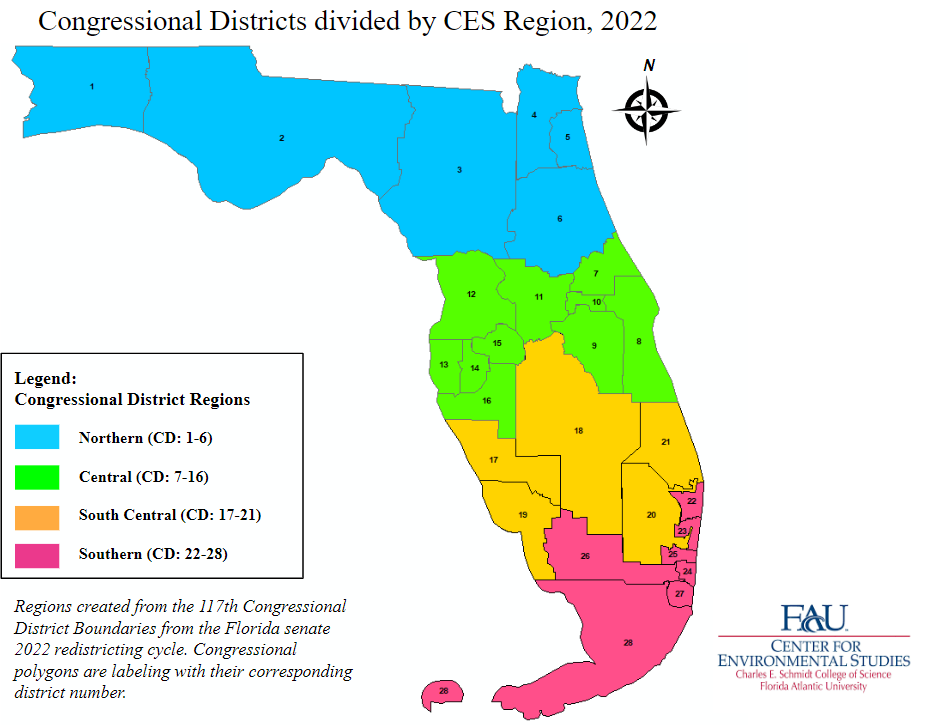Florida Climate Resilience Survey - September 2022
Climate Change Consensus Endures in Florida
Seventh Wave of FAU's Florida Climate Resilience Poll Tracks Evolution of Florida Public Opinion
Highlights
-
92% of Floridians believe that climate change is happening, but only 58% think it is caused by human impacts. This value is higher than the national average of Americans that believe climate change is greatly caused by human activity (46%) - Pew Research.
-
Over half of Floridians support solar energy production for the future (62%) but less than 10% currently have solar as their primary source of energy right now. About half of respondents were unsure of their primary energy source.
-
The total overall support for teaching about the impacts of climate change in schools K-12 is at 71%. Over three-quarters of Floridians under the age of 50 exhibited the greatest amount of support (77%), whereas two-thirds of older generations (50 years and older) showed support of climate education (66%).
-
Belief that the Florida government is doing enough to address climate change has hit an all time low for the Florida Climate Resilience Survey, with less than a quarter of Floridians agreeing that the state government is doing enough (23%). This trend is also apparent by political party, with democrats dropping to 16% and republicans at 36% in agreement that Florida is doing enough.
-
In the September 2022 survey, an additional question was asked regarding the Inflation Reduction Act passed in August of 2022, where 45% of respondents showed ‘support’ or ‘strong support’ for the new policy, 21% opposed it, and one-third of respondents were ambivalent.
-
42% of Floridians agreed that they would be willing to pay an additional $10 per month tax to strengthen the state’s infrastructure.

Methodology
The survey was conducted in English from September 1-7, 2022. The sample consisted of 1,400 Floridians, 18 years of age and older, with a margin of error of +/- 2.62 percent. The data was collected using an online panel provided by GreatBlue Research. Responses for the entire sample were weighted to adjust for age, race, income, education and gender according to 2020 U.S. Bureau of the Census data. It is important to remember that subsets carry with them higher margins of error, as the sample size is reduced. For more information, survey results, and full cross-tabulations, visit www.ces.fau.edu/ces-bepi/ or contact Colin Polsky, Ph.D., at cpolsky@fau.edu.
In The News
